Do you love nature? Animals? How about art? Do you wonder what it’s like to embrace all three for a career in illustration and publishing? Artist June Steube shares her experiences in this incredible, in-depth interview. Learn about her journey, gain valuable insight into book publishing from an illustrator’s perspective, see how she overcomes tough projects, and consider the tools she uses for success. Also, get a sneak peek into her upcoming children’s book project about birds with OwlKids Press! This is one interview you do NOT want to miss.
When you buy through my links, I may earn money from my affiliate partners. Learn more.
June, thank you so much for sharing your literary journey with us. Your work is of the highest quality and we easily lose track of time viewing your diverse and detailed portfolio. Much of your work (I dare not say all!) focuses on the natural world. Is this a reflection of who you are? Have you always been interested in capturing the beauty and detail of our planet and the environment around us?
Thank you so much, Rhys! It’s a pleasure to be featured on your site!
When I was young, I was fascinated by nature and especially by animals of all sorts. Both of my parents were in awe of the natural world. To this day, my father’s reverence for all animals resonates deeply with me.
I’m drawn to any creative expression that makes me feel a profound connection to nature. As a kid I read every book on the library shelf about animals. Books like Curious George, White Fang and The Dog Who Wouldn’t Be and more recently, Pax, now inspire my writing. My heart aches when I hear about the millions of animals that are being wiped out — because of forces like climate change. It’s not something I do consciously in my work, but I do feel there’s more urgency than ever to introduce children to the beauty and vulnerability of the natural world.
When I’m itching to play around in the studio, I keep going back to drawing animals. My hope is that children (and adults!) recognize something of themselves in the drawings — especially the comical ones!
Our planetary health is a serious concern for many and artists have a unique ability to present calamity and concern in a single image. It’s been said that if you do what you love for work, you’ll never work a day in your life. Though that sounds magical, it may not be true in the best sense of the word; work. Do you find your art laborious even when you’re drawing what you love and doing what you love?
Absolutely! Sometimes I have to pin myself to the chair and just keep at it. I’ll spend days sketching thumbnails, working out point-of-view (POV) and composition. It can be the most rewarding part of the process (other than the finishing touches!) but it can feel frustrating and tedious when I am struggling to bring my vision to the page.
Once I’ve worked out the values and the color scheme, the digital coloring in multiple layers can get mind-numbing. But I try to make room to draw just for the fun of it, sketching characters in multiple poses or drawing an animal with charcoal and pastel. These are minimally colored and take less than an hour or two. That’s pure joy.
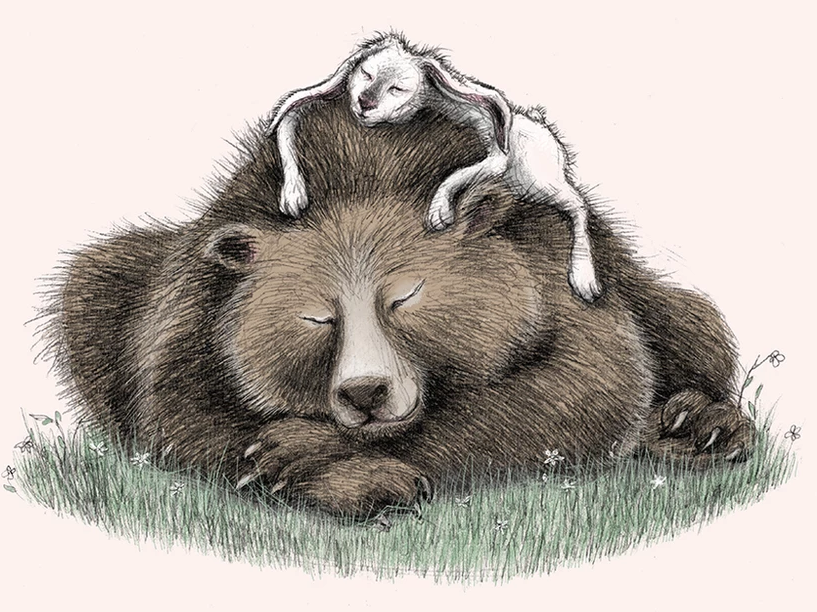
How do you push through some of the monotony associated with completing a project?
Actually Rhys, I’ve given a lot of thought to that over this past year. For me, less monotony means less digital and finding a way to hold on to the freshness of a sketch – to not overwork it. So, I’m spending more time working with pencils, pastels, and watercolors. Scanning the sketch frees me to play around at the color stage. By digitally knocking out the whites in the sketch I can add in scanned color layers. So I’ve been trying to find a way to combine the joy and surprise of traditional with the ease and forgiveness of digital.
How has your approach changed over the years to cut through the menial tasks and focus on what matters most?
To me, the most menial task is when you need to fix something you didn’t work out at the start. I used to rush through the sketches and idea stage because I was so impatient to get to color. That’s just asking for headaches. My strengths are in the sketch not in the color – the magic lies in those initial stages.
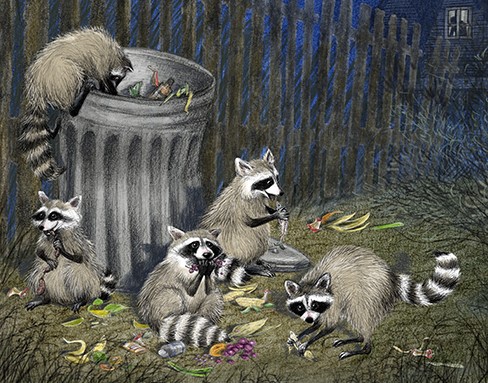
I think many experienced and growing artists will be able to take those ideas to heart. Speaking of heart, do you have a favorite sketch or illustration piece? What is it and what about it speaks to you so deeply?
One that still makes me smile is ‘Fox Teeth’. I enjoy reflecting our own foibles onto characters. There’s something inherently funny about someone who takes themselves too seriously and kids are perceptive enough to get that. I hope it tickles their funny bone! I’m thrilled that it’s appearing alongside some outstanding poetry in the next issue of The Caterpillar Magazine.
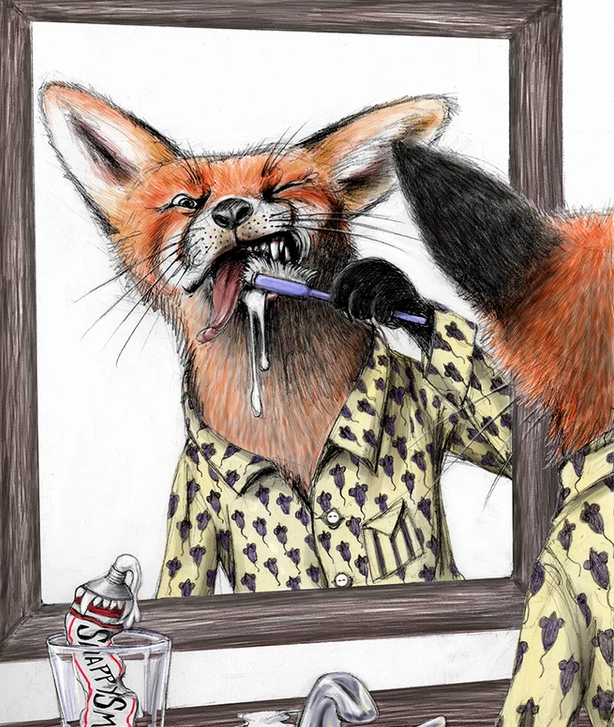
What a beautiful and fun illustration! You really capture the details in the questions, “How might a fox brush their teeth?” As an artist, you’re forced to answer those types of questions in ways most of us don’t even consider! As you’ve grown in your skill and ability as an artist, no doubt you’ve experienced temporary limitation or tough feedback / criticism. Was there every a time or experience where feedback on a piece caused you to struggle and doubt your abilities? How did you handle it and how do you recommend other creatives deal with tough criticism, unsolicited critiques, or even their own temporary limitation in skill?
Thank you, Rhys!! Absolutely! I can laugh at some of it now! A personal book project I worked on for eight years was critiqued in three sessions by a well respected art director. He said the images looked like beautiful paintings in a gallery – which caused me to fluff my feathers a bit! Until he told me that almost every image required a complete revision – back to thumbnails! What he was actually saying was that each spread was totally separate from the others, and they needed to work in progression and yet as a whole. He was kind and supportive and I could see his critique was right on the mark. I think the best critiques leave you with the recognition of your strengths and weaknesses and point a way forward.
Another known art director liked only one illustration in my portfolio and for each of the rest he barked ‘OUT!’ That was difficult and took a few months for me to sit with. A while later I mentioned the experience to another art director who went on a rant about this guy and his reputation for caustic critiques. So if you can, don’t just take one opinion to heart, get as many as you can from people that are knowledgeable.
Most importantly, I would urge someone to keep working and learning because you love it, not for someone else’s approval. Without that, I don’t know how you can channel your passion into your vision. With time, other’s opinions won’t matter as much, so they’ll do little to crush you or, alternatively, buoy you if you don’t like your work. In the end, I think the toughest criticisms are usually the ones we give ourselves. Hopefully, you can use that to help you grow. Try not to let it stifle you. In my experience, it’s all part of the process of creating. It helps to have a supportive community to help you through those times when you feel discouraged and afraid to try. Be doggedly persistent and keep at it even when it feels like you’re just treading water. Be confident that if you work hard enough you’ll get there.
I can only imagine how tough that must have been in the moment, having someone express such careless disdain for work you spent so much time and emotion on. And yet, you seem to have such a healthy way of dealing with it and moving on from it. You’re really an inspiration and I’m sure many creatives will be able to take what you’ve said to heart. Hopefully a few of our readers could share some similar experiences in the comments below and how they’ve grown in the process wink wink nudge nudge readers! June, did you come from an artistic family? How did your love for art blossom and were there any critical moments or people along the way that solidified your passion and ability to create art? Was there an age or time you KNEW being an artist was the life for you?
That’s kind of you to say, Rhys. I suppose it sounds easier to take in retrospect.
When I was young, the only exposure to art was my father’s art from his twenties: one drawing of horses hung in his den, and more were hidden behind coats in his closet. I loved to look through them and wondered about this curious side of who he once was.
My mother paints now and she is daring – her work is incredibly loose and carefree. Our son is a skillful young artist painting graffiti inspired murals and urban art. My husband’s family are all accomplished artists; a printmaker, potter, jeweler, and filmmaker. You could say I come from an artistic family!
I always remember wanting to draw, paint and look at art. A turning point came when I met my husband’s family – they took the rash step and did this for a living! It felt as if I had permission to do what I wanted to do all along. There have been so many teachers and fellow artists along the way that have inspired me and guided my work. But I wouldn’t be able to be a full-time artist without my husband’s unfaltering support – because of physical setbacks I wouldn’t have the stamina. I suspect that, for a myriad of reasons, many artists are high maintenance!
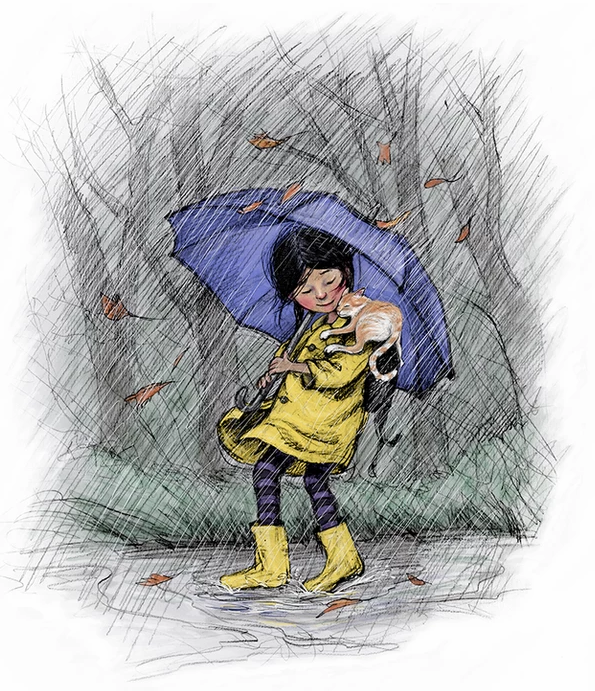
Speaking of knowing you wanted to fill your life with art and the beauty of nature, you’ve just signed with OwlKids Books to illustrate a nonfiction children’s book on birds written by Etta Kaner, an experienced author who’s received many awards for her work. How did that project find you and what’s been your focus for this piece?
This is my first illustrated children’s book, and I have the pleasure of working with Debbie Rogosin, the editor for Owlkids Books. My SCBWI group advised me to use a literary consultant for contract negotiations. My literary consultant, Sally Keefe Cohen, worked directly with the publisher, making the process worry-free and financially worthwhile, allowing me to focus on the book straight away.
Usually every couple of weeks or so, I’m in touch with Debbie and we’ve exchanged emails about deadlines (for thumbnails, roughs, and final art), timing for feedback, manuscript updates, or any questions I had about the direction of the work. I’ll send along the occasional sketch to show where the work is headed in terms of style and detail. Debbie sometimes relays questions or shares sketches with the publisher and author.
Owlkids seems very respectful of the creative voices that both the author and illustrator bring to a project and I’ve been incredibly grateful to be given a lot of free rein in this regard. It varies with publishers, but for Owlkids, the designer will become involved in the project after the thumbnails or roughs are completed. That’s when there’ll likely be the most revision requests for the interior illustrations and later, conversations regarding the cover and title page. I would imagine there will also be some revisions after final art is submitted.
In my experience working with book publishers on covers and interior illustrations for adult books, the amount of communication varied depending on the publisher, the working style of the art director, and whether the author could weigh in on the visuals.
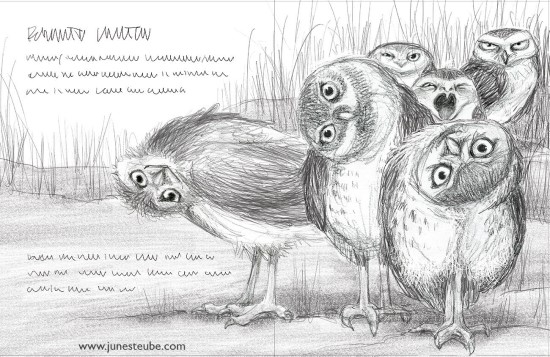
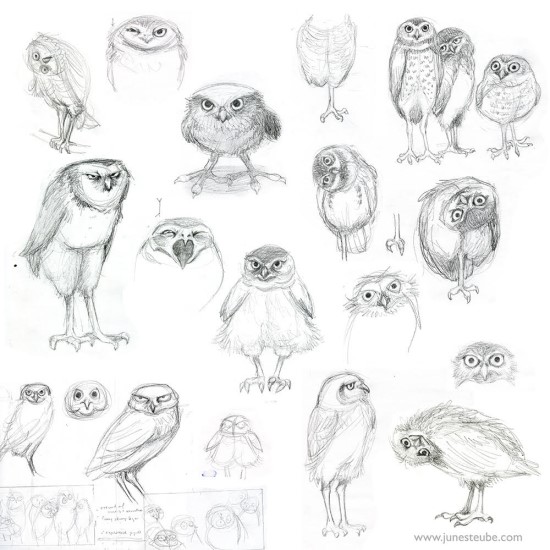
How many variations of sketches or thumbnails do you usually go through before knowing it’s time to submit for review? Do you get a certain sense or feeling when you believe the sketch has captured the intended vision?
I usually begin with sketches of the character or in this case the bird. Those poses and expressions lead to ideas for the thumbnail sketches. That’s where I work out the point of view and the narrative, looking for ways to heighten the emotion or humor. I’ll usually do about 20 to 40 small sketches before I go to rough (a detailed drawing). I am looking to convey a certain emotion, narrative, or sense of anticipation and sometimes, there’s a pleasing sense of satisfaction that I’ve gotten there.
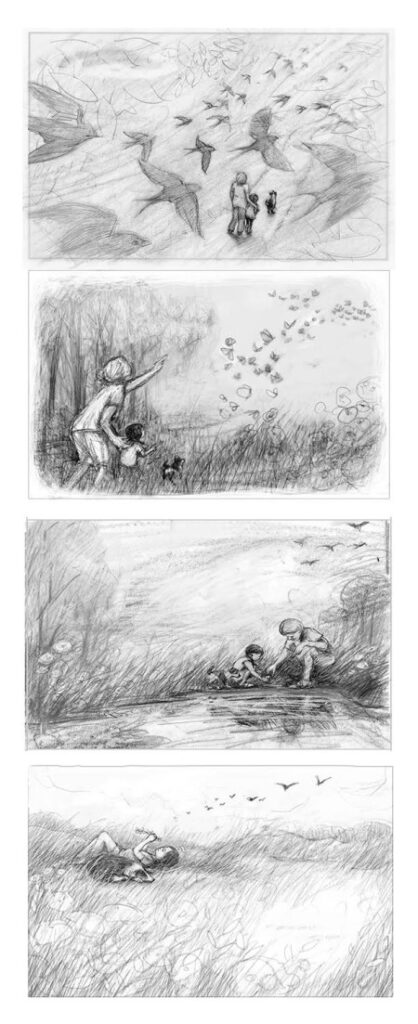
A tremendous amount of work goes into the development of these small sketches. When you struggle with capturing what you feel like is necessary, what is your process to work through what isn’t working to ultimately find what works best? Does it just boil down to more poses, more sketches, more angles…or do you seek advice, look through illustration examples, or some other method to figure out what might be the fix?
All of those work, Rhys! I also bring my sketches into Photoshop and move elements around, changing their size, flipping them. Sometimes I feel like I’m going nowhere and need to put it aside and return to it later.
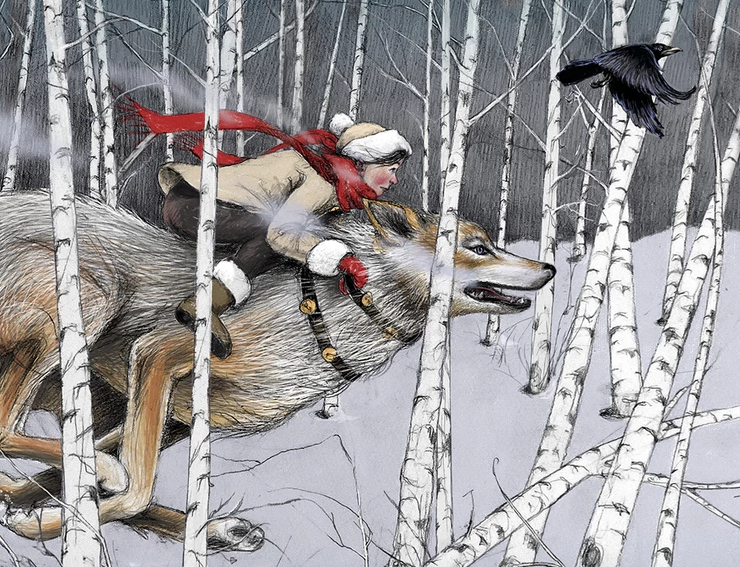
Do you have a favorite sketching medium? Is it usually in Photoshop or do you first sketch by hand? Any tools or software you recommend to other aspiring artists?
My favorite tools are a 2B pencil and a good-sized pad of sketch paper. I use all kinds of erasers including a kneaded eraser and a mono eraser. My preference is traditional media by far, but Photoshop is where I work with the design of the page and do some coloring and touch-ups. You’ll need a graphics tablet like a Cintiq and a quality scanner.
Most illustrators use Photoshop. Some enjoy illustrating on an iPad using Procreate, but that’s quite an expensive option. If you prefer not to invest to that extent, I would suggest traditional media all the way, then photograph your work and assemble it on your computer. That’s a perfectly acceptable way to make a dummy!
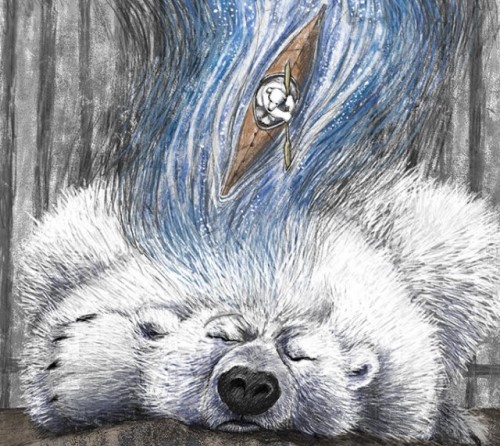
Artistic talent and skill is an enviable ability. Some say becoming better boils down to serious practice over a long period of time. What do you recommend for aspiring artists looking to hone their craft and become known for their own artistic style?
I’ve made a lot of mistakes trying to find my way. I would agree that serious practice is required and that it does take a long time to build confidence in your work and see your own distinctive voice emerge.
Draw from life. Express what you are most passionate about, while continuing to challenge yourself. Take courses, learn from the best by signing up for mentorships, and join a critique group. Try not to follow trends. Illustrator and Educator Yuko Shimizu said to ‘Compare yourself to yourself, not to other people’.
Strive to shed a new light and express a sense of wonder.
Well put, June! Yuko Shimizu shares a lot of illustration insight in her podcast interview for Giuseppe Castellano’s, The Illustration Department. You’ve shared so much insight with us from an artist’s point of view. What could we expect to see from you over the next year or two besides the exciting book release from OwlKids Press? Also, how could we best stay up to date on your work and what is your preferred way for people to connect with you?
Thank you so much for your interest in my work, the insightful questions, and the opportunity to be featured on ‘Words that show the way‘! There’s a surprise release featuring a beaver in late fall. I’ve been working on three dummies including one that I can’t wait to start sketches for – about a houseful of cats! I regularly post work on instagram @junesteubeart and my website http://junesteube.com. You can reach me there or by email at june.steube@icloud.com. Hoping everyone can stay safe in the coming months.
If you enjoyed this wonderful interview with illustrator June Steube, would you consider doing four simple things?
- Leave a comment! What impacted you and what questions do you have for our friend, June?
- Share this publishing industry interview on social media using the button links provided. If you found it valuable, so will your friends! Be the one who gives them what they need.
- Subscribe to my blog via the email subscription box to get new content delivered directly to you. No more waiting around to learn about it second-hand. You and your work is worth it!
- Connect with June Steube on Twitter @june_steube.
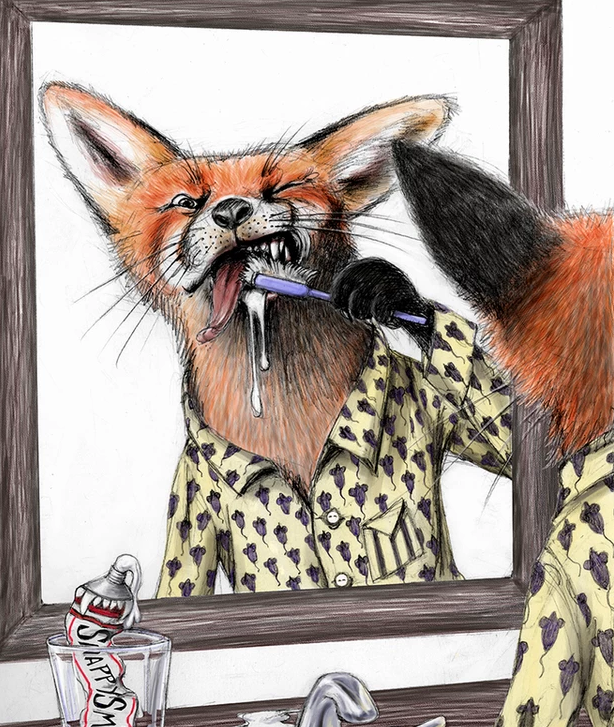
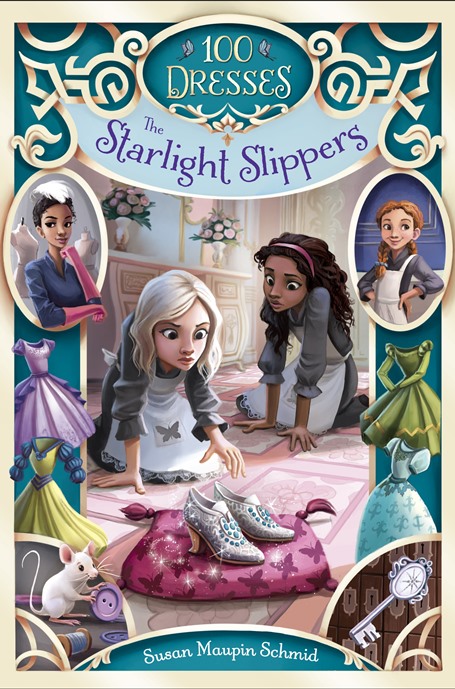
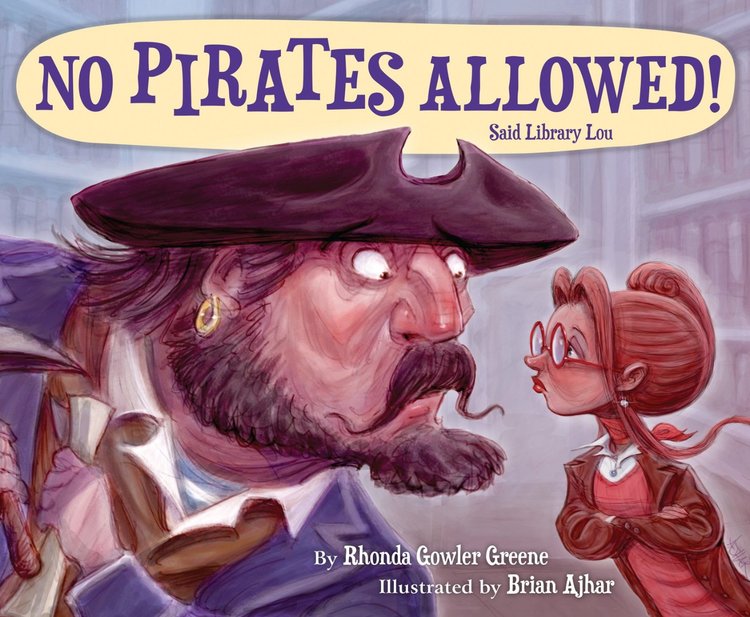
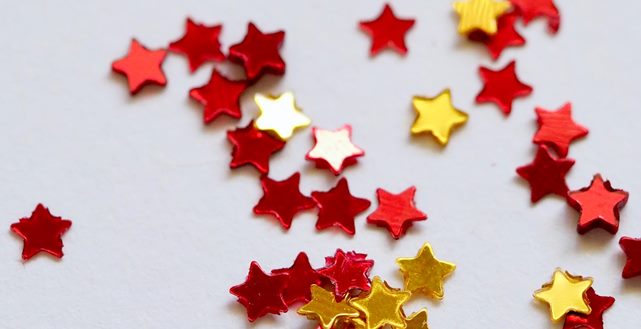
Jirah Merizz
August 4, 2020This is such a good interview! Loved reading it.
Jirah Merizz | https://writingsbyjm.com/
Rhys Keller
August 4, 2020Thank you, Jirah!
Roger P. Mulligan
July 30, 2020Great to see this interview with June, an old friend. We have always loved her work, and are grateful to have one of her Haida Gwaii works, from long ago, hanging in our home.
One thing that wasn’t said here was what an encourager June is. She has supported and encouraged me in my photographic work as long as we’ve known each other (40 odd years), and I’m certain there are many others out there that have felt that same support and encouragement.
Good one Rhys – thanks so much for this! Love ya June – Roger (and Rilla)
Rhys Keller
July 30, 2020Thank you for sharing that sweet sentiment, Roger! June is clearly one of those people who has worked hard to develop her craft and support others in their pursuits.
June Steube
July 30, 2020That is so thoughtful and kind of you to say Roger! My efforts to encourage your photography are completely selfish – just comes down to the frustration I feel that you are not recognized as one of Canada’s genuine artistic treasures. Just wanting to hold a book of your photos in my hand one day is all. Love you guys too! Hope to see you soon :0)
Anne-Louise Todd
July 30, 2020So pleased to read your insightful interview. June is truly a talented artist and her compassion for people and all living things is genuine and constant. Such a beautiful person!
Rhys Keller
July 30, 2020Thank you so much for sharing, Anne-Louise!
June Steube
July 30, 2020Thanks from the heart, Anne Louise, my special friend.
I Schlote
July 29, 2020A great interview! June, your work touches my soul. It is so endearing.
Rhys Keller
July 30, 2020Thank you for sharing!
June Steube
July 30, 2020Thank you so much Ingrid! Our souls are intertwined :0)
Irma
July 29, 2020June’s Art is like a fairy tale. It takes you into a place of wonder, beyond the everyday. Her drawings are realistic But so much more. Her sensitivity to all living things and a deep reverence for life shine through, yet it is that lovely humour that transforms her art to a whole new level. I am in awe.
Rhys Keller
July 29, 2020What a kind note, Irma! Thank you for sharing. June’s art is truly serene with that touch of humor!
June Steube
July 29, 2020Oh wow, thank you so much Irma! It’s so special to hear that my work evokes a feeling – especially love it when I can make you smile :0)
David McMullin
July 28, 2020What a wonderful interview. June’s art is amazing!
Rhys Keller
July 28, 2020Thank you, David! I couldn’t agree more. Not only is June an incredible artist, she’s a truly genuine person eager to help other people by sharing her story and experiences.
June Steube
July 29, 2020Thank you so much Rhys! It’s been a wonderful experience working with you on the interview!
June Steube
July 29, 2020Thank you so much David! As is your poetry dear friend!! :0)